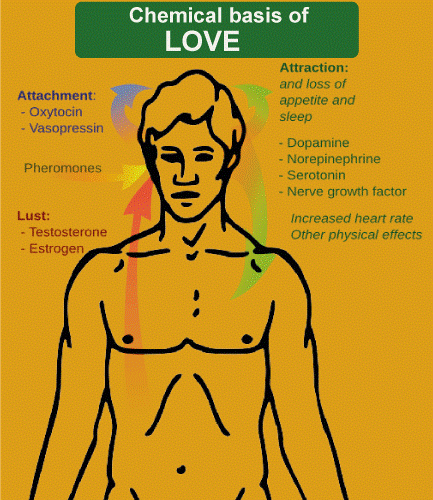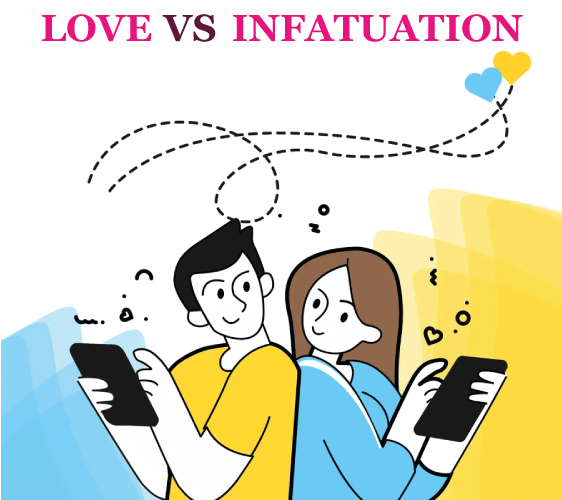Best Definition of LoveLove is one of the most complex and mysterious emotions that human beings experience. It has been the subject of countless poems, songs, and works of literature, yet it remains elusive and difficult to define. The best definition of love is a highly contested topic, with philosophers, psychologists, and poets offering their own interpretations. In this article, we will explore various definitions of love and examine their merits and shortcomings. What is Love?Before we can begin to define love, we must first understand what it is. Love is a feeling of strong attachment or deep affection for someone or something. It is a feeling that is frequently characterized as intense, strong, and all-pervasive. Love can be directed towards a romantic partner, family member, friend, pet, or even an activity or hobby. 
Defining Love: Philosophical PerspectivesPhilosophers have been grappling with the concept of love for centuries, attempting to define it in a way that is comprehensive and universal. One of the most influential philosophical perspectives on love comes from Plato, who argued that love is the desire for the beautiful and the good. For Plato, love is an aspiration towards something greater than oneself, a desire to be united with that which is beautiful and good. Another influential philosophical perspective on love comes from Aristotle, who argued that love is a virtue that involves both passion and reason. Aristotle believed that love is a complex emotion that involves both desire and appreciation for the qualities of the beloved. More recently, the philosopher Erich Fromm has argued that love is not just an emotion but also an art. FROMM contends that love involves self-control, endurance, and a readiness to put the demands of the other person ahead of one's own. Defining Love: Literary PerspectivesLove has been a central theme in literature for centuries, with writers attempting to capture the essence of this complex emotion in their works. One of the most famous literary definitions of love comes from William Shakespeare's Sonnet 116, which describes love as "an ever-fixed mark / That looks on tempests and is never shaken." Another literary perspective on love comes from the poet Rumi, who wrote extensively about the spiritual aspects of love. According to Rumi, love is not just an emotion but also a path to enlightenment and transcendence. For Rumi, love is a force that can transform individuals and bring them closer to the divine. More recently, the author, bell hooks, has written extensively about love, arguing that it is a political act that involves acknowledging and addressing the inequalities and injustices in society. According to Hooks, love is not just a feeling but also a practice that requires us to work towards creating a more just and equitable world. The Various Expressions of LoveLove is a complicated, multifaceted feeling that can manifest itself in a variety of ways. 
Love is a complicated, multifaceted feeling that can manifest itself in a variety of ways. Here are some of the different forms of love:
Overall, the forms of love are diverse and complex and can overlap and intersect with one another in various ways. The Psychology of LoveThe psychology of love is a fascinating and complex subject and has been studied extensively by psychologists and researchers over the years. Here are some key concepts and theories related to the psychology of love: 1. Attachment TheoryThis theory proposes that the nature of our early relationships with our primary caregivers (usually our parents) can shape our attachment style in adult romantic relationships. In contrast to people with insecure attachment styles, those with secure attachment patterns frequently enjoy more stable and fulfilling relationships. 2. Triangular Theory of LoveThis theory proposes that love consists of three components: intimacy (feelings of closeness and emotional connection), passion (sexual attraction and desire), and commitment (a willingness to maintain the relationship). Different combinations of these elements can result in various forms of love, including infatuation, passionate love, and companionate love. 3. Sternberg's Theory of LoveThis theory expands on the triangular theory of love by proposing that love consists of three elements: intimacy, passion, and decision/commitment. These elements can combine in different ways to create different types of love, such as romantic love (high intimacy and passion), companionate love (high intimacy and commitment), or empty love (high commitment but low intimacy and passion). 4. The Attachment Theory of LoveThis theory suggests that the quality of our early attachment relationships with caregivers shapes our attachment style in adult relationships. In contrast to people with insecure attachment styles, those with secure attachment patterns frequently enjoy more stable and fulfilling relationships. 5. The Social Exchange TheoryThis theory proposes that people enter into relationships based on the rewards and costs they expect to receive. People evaluate relationships based on the benefits they expect to receive and the effort they have to put in to obtain those benefits. 6. The Triangular Love TheoryThis theory suggests that love consists of three elements: intimacy, passion, and commitment. These components can be combined in various ways to produce various forms of love, including companionate, passionate, and empty love. 7. The Investment Model of RelationshipsThis model suggests that people stay in relationships based on their perceptions of the rewards, costs, and alternatives to the relationship. People are less inclined to end a relationship the more involved they are in it. Overall, the psychology of love is a complex and fascinating subject that touches on many aspects of human behavior and emotions. Love and Biology: The Science Behind LoveLove is not just an emotion, and it is also a biological process that has been studied extensively by scientists. 
Here are some key findings related to the science behind love: 1. NeurochemicalSeveral neurotransmitters and hormones are involved in the experience of love. While oxytocin is linked to social connection and gratification, dopamine is related to pleasure and reward. Other neurochemicals, such as norepinephrine and serotonin, also play a role in love. 2. Brain ActivityBrain scans have shown that different areas of the brain are activated when people are experiencing romantic love, compared to when they are experiencing other emotions. The brain's reward system is particularly active during romantic love, leading to feelings of pleasure and motivation. 3. Evolutionary FunctionSome scientists believe that romantic love evolved as a way to promote bonding and attachment between partners, which can increase the chances of survival and reproduction. 4. Physical AttractionPhysical attraction plays a role in romantic love, and studies have shown that people are more likely to be attracted to others who possess certain physical characteristics, such as symmetry and clear skin. 5. SimilarityPeople are more drawn to those who have attitudes, values, and interests similar to their own. This is known as the "similarity principle." 6. Long-Term RelationshipsResearch has shown that the experience of romantic love can change over time in long-term relationships. As partners become more familiar with each other, feelings of attachment and companionship may become more important than feelings of passion and excitement. Overall, the science behind love is complex and multifaceted, involving a combination of biological, psychological, and evolutionary factors. How to Recognize True LoveRecognizing true love can be difficult, as it is often accompanied by strong emotions and feelings that can be confusing. However, here are some signs that can help you recognize true love:
Overall, true love is characterized by acceptance, respect, trust, communication, shared values, emotional connection, sacrifice, and growth. The Importance of Love in LifeLove is one of the most important things in life, as it can have a profound impact on our overall happiness and well-being. Here are some reasons why love is so important: 1. ConnectionLove allows us to form deep connections with others, which can be incredibly fulfilling and enriching. It allows us to feel a sense of belonging and purpose in life and can help us to overcome feelings of loneliness and isolation. 2. Emotional Well-BeingLove can have a significant impact on our emotional well-being, as it can provide us with feelings of joy, contentment, and security. We can better control our stress levels and deal with challenging circumstances by using them. 3. Physical Well-BeingResearch has revealed that love may improve our physical well-being. It can help to lower blood pressure, reduce the risk of heart disease, and boost our immune system. 4. Growth and DevelopmentLove has the potential to contribute to our personal growth and development. It can inspire us to become better people, pursue our passions and interests, and overcome our fears and insecurities. 5. Meaning and PurposeLove can give our lives meaning and purpose, as it allows us to connect with something greater than ourselves. It can motivate us to change the world for the better and leave a lasting legacy. Overall, love is an essential part of a fulfilling and meaningful life. It allows us to form deep connections with others, experience joy and contentment, improve our physical health, grow and develop as individuals, and find meaning and purpose in life. How to Cultivate Love in Your LifeCultivating love in your life involves recognizing the importance of love and making it a priority. This can involve developing self-love, building strong relationships with friends and family, and seeking out opportunities to connect with others. It can also involve practicing kindness, empathy, and compassion towards others, as these qualities are essential for fostering love and intimacy. The Role of Love in SocietyLove plays a crucial role in society, as it helps to build strong communities and promote social cohesion. Love is the foundation of healthy relationships, which are essential for the well-being of individuals, families, and communities. Love can also inspire acts of kindness, generosity, and compassion, which are essential for creating a more just and equitable society. The Connection Between Love and HappinessLove is closely linked to happiness, and research has shown that people who experience love are generally happier than those who do not. Love can bring joy, fulfillment, and a sense of purpose to our lives, and it can help us navigate the challenges and difficulties that we face. Additionally, love can enhance our mental and emotional health by lowering stress, anxiety, and depressive symptoms. Love's Positive Effects on Mental HealthNumerous advantages of love include elevating mood, alleviating tension and stress, and enhancing emotions of well-being. In order to effectively manage mental health issues like depression and anxiety, love can also assist in fostering healthy coping strategies and resilience. The Impact of Love on Physical HealthLove can also have a significant impact on our physical health, improving cardiovascular health, reducing inflammation, and boosting the immune system. Love can also reduce the risk of chronic diseases such as diabetes and hypertension, and it can promote healthy behaviors such as exercise, healthy eating, and getting enough sleep. What Separates Love from InfatuationThough they are sometimes misunderstood, infatuation and love are quite distinct feelings. 
Here are some key differences between love and infatuation:
Overall, love and infatuation are different emotions with different characteristics and motivations. While infatuation may involve intense feelings of passion and desire, it is often short-lived and may not involve a deeper emotional connection or understanding of the other person. In contrast, love is a stronger feeling that lasts longer and is characterized by greater levels of emotional connection, friendship, and selflessness. The Role of Communication in LoveCommunication is an essential aspect of love, as it helps to build intimacy, trust, and understanding. The capacity to express oneself honestly and freely, active listening, and empathy are all necessary for effective communication. Healthy relationships depend on effective communication, which may also be used to settle disputes and create strong, long-lasting bonds. How to Keep Love Alive in a Long-Term RelationshipKeeping love alive in a long-term relationship requires effort, dedication, and a willingness to work through challenges and difficulties. It involves building intimacy, practicing effective communication, and finding ways to connect with your partner on a regular basis. It also involves being patient, forgiving, and supportive, even in the face of adversity. By prioritizing love and cultivating a strong, healthy relationship, couples can build a lifelong partnership filled with love and happiness. ConclusionIn conclusion, the best definition of love is a matter of debate and interpretation, with various philosophical, psychological, and literary perspectives offering their own unique insights. Whether we define love as an aspiration towards beauty and goodness, a complex emotion that involves passion and reason, or a practice that involves working toward social justice, it is clear that love is a powerful force that can have a profound impact on our lives. Ultimately, the best definition of love may be one that acknowledges its complexity and multifaceted nature. Love is not a simple emotion that can be neatly categorized or explained but rather a rich and nuanced experience that defies easy description. By embracing the mystery and complexity of love, we can open ourselves up to the transformative power of this powerful emotion and all that it has to offer.
Next TopicBiofertilizer Definition
|
 For Videos Join Our Youtube Channel: Join Now
For Videos Join Our Youtube Channel: Join Now
Feedback
- Send your Feedback to [email protected]
Help Others, Please Share









